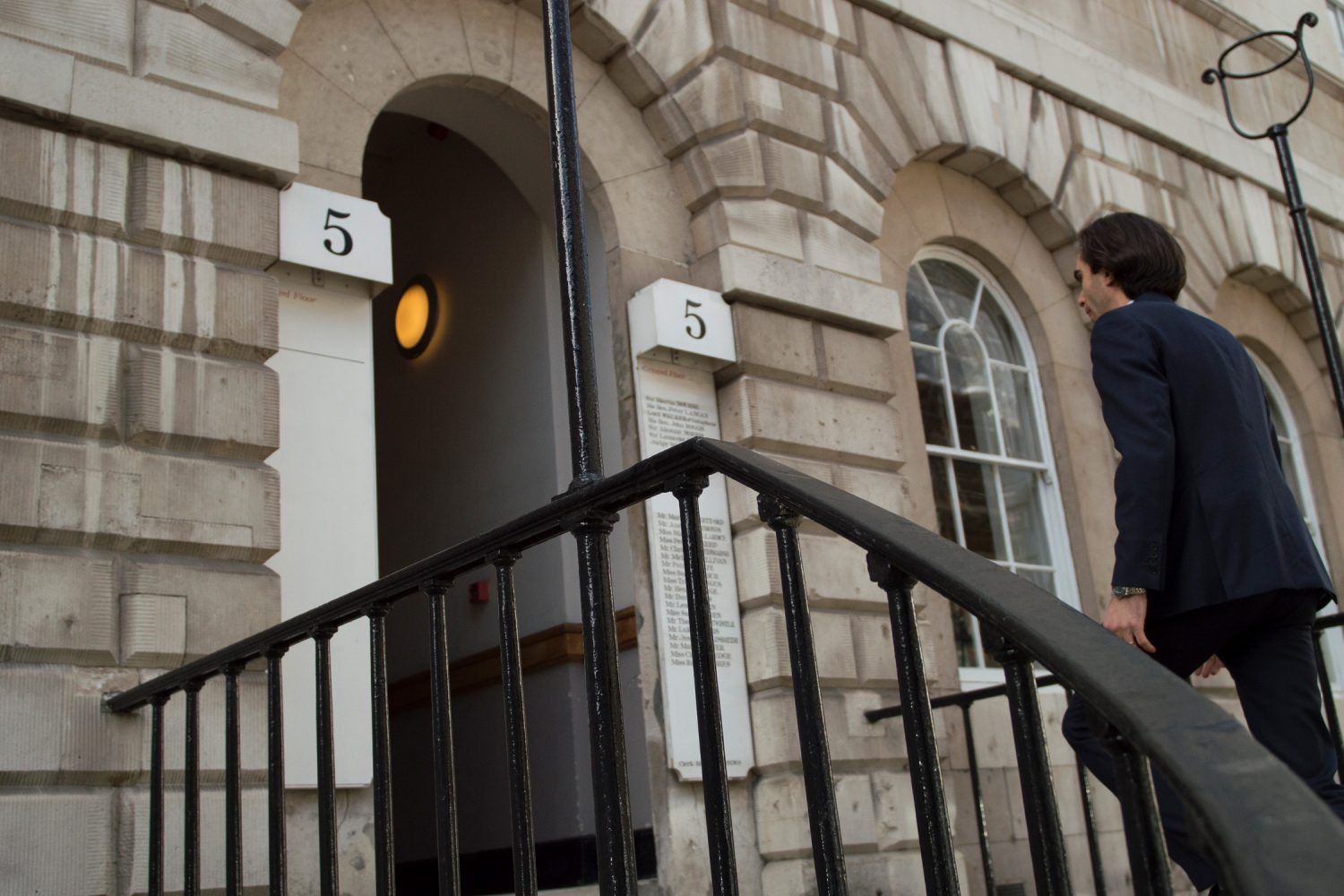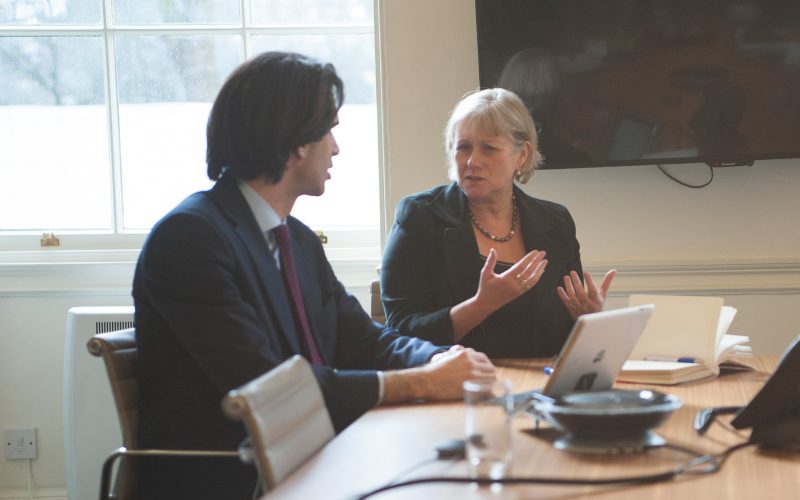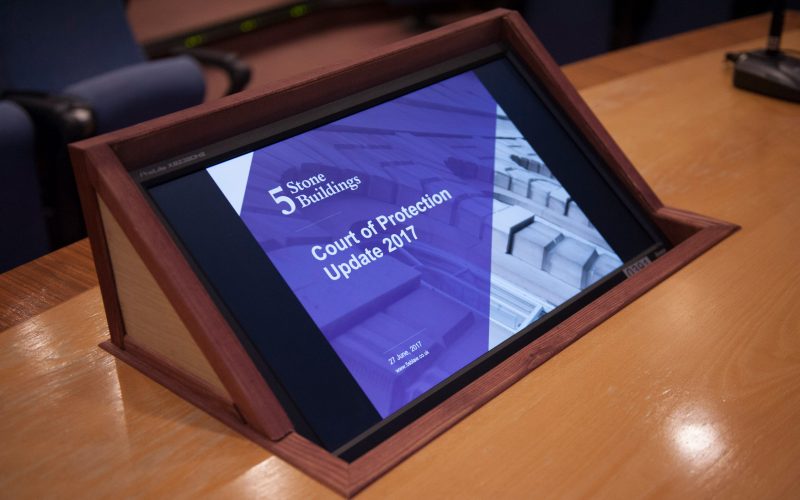Cases of interest – February
Each month we will be noting recent decisions in our areas of practice. This month we note two decisions of the Court of Protection relating to Property and Affairs.
Marriage of elderly individuals suffering from impaired capacity is a sensitive issue for those who advise them. This is particularly the case where the individual lacks testamentary capacity, such that the effect of any marriage would be to revoke any former will in circumstances where the individual cannot make a new will. The only possibility in those circumstances is an application for a statutory will.
The case of DMM reported in two separate judgments of HHJ Marston concern the case of a gentleman in his mid-80s who suffers from Alzheimer’s disease. DMM wished to marry SD, a lady in her 70s with whom DMM had cohabited for around 20 years. SD was a beneficiary of DMM’s will dated 11 December 2013. The other beneficiaries of his will were his three adult daughters from a previous marriage.
One of his daughters (‘EJ’) was the donee of an enduring power of attorney executed in 2007, and of a lasting power of attorney for health and welfare executed in 2013.
In November 2016 the question arose whether DMM had capacity to revoke his power of attorney, to make a new power of attorney, and to marry. SD commissioned a report from a consultant psychiatrist, which concluded DMM did not have capacity to make or revoke the power of attorney but did have capacity to marry.
EJ obtained the report of an independent mental capacity assessor, who reported that DMM lacked testamentary capacity and capacity to marry. EJ also entered a caveat at the registry office to prevent any marriage between DMM and SD.
The proceedings in the Court of Protection started with an interim injunction preventing the marriage, and a preliminary issue was whether the test for whether a person has capacity to marry includes a requirement that the person should be able to understand, retain, use and weigh information as to the reasonably foreseeable financial consequences of a marriage, including that the marriage would automatically revoke the individual’s existing will.
In this case the effect of marriage on the overall financial position on DMM’s death was very significant to the children and to SD. There was clear evidence that DMM was not able to retain the relevant information.
The hearing of the preliminary issue took place in July 2017. The court concluded that the fact that a marriage revokes an earlier will is information that a person should be able to understand, retain, use and weigh to have capacity to marry. The revocation of the earlier will was a certain consequence of marriage, and was part of the information an individual was required to retain use and weigh in order to have the relevant capacity.
A further hearing took place in October 2017. In the intervening time, DMM was made a party to proceedings and was represented by a litigation friend. A jointly instructed expert consultant psychiatrist had reported on DMM’s capacity to marry. He reported that on the basis of the test as stated by the judge at the earlier hearing that DMM did have capacity.
The court noted that this had become a very bitter dispute and that DMM suffers from a degenerative disease so may lose capacity in the near future. An appeal to the Court of Appeal is mentioned though it is not known whether this has been pursued.
This is arguably a highly significant case in this area. As was noted in the judgment, the case-law in this area has established a low threshold for the capacity to marry, effectively as a matter of public policy.
In the circumstances of this particular case the threshold set by the judge was met, as DMM was able to retain the relevant information. However, it is not hard to envisage cases where that will not be possible due to the level of incapacity, and this case appears factually to have been on the borderline. Moreover there is no clear logical distinction between a marriage altering the intestacy provisions that apply and a marriage revoking an earlier will with the consequence that the intestacy provisions apply. This decision will be important in any case where the effect of a marriage will be to alter the disposition of an individual’s estate on death.
A copy of the judgments is available here.
It has become increasingly common for solicitors’ firms to seek that appointments as deputy for property and affairs be made to the firm’s associated trust corporation. The use of trust corporations is encouraged by the Law Society on the basis of continuity and availability of the appointed deputy. With a trust corporation appointment, there can be a gradual change in directors and staff, rather than the abrupt change on the retirement of a specific named deputy.
Furthermore, as a trust corporation permits more people to make decisions in the management of an incapacitated person’s assets, temporary absence of a particular lawyer is much more easily dealt with. In addition, a corporate structure can confer much greater security for the incapacitated person’s assets and avoids the need to apply to the court to change a deputy as practitioners retire or move firm. For all these reasons, in many cases the appointment of a trust corporation will be preferable to appointing a named individual professional as deputy.
Despite the clear benefits of the use of trust corporations as deputies, their increasing use had led the Court of Protection to be concerned with how in each case it could be sure that a particular corporate body was a fit and proper person to be appointed as deputy. This had led to a significant number of applications being either delayed or granted only on an interim basis. In this case, the Court listed 36 such matters involving 11 firms together for a hearing to resolve these issues as a test case. Evidence was obtained from the deputyship bond providers and the Solicitors Regulation Authority (‘the SRA’) on the relevant issues.
The Court acknowledged that the usual method of being sure of a deputy’s propriety was the deputy’s declaration on Form COP4. However, many of the questions in this form did not sensibly apply to a trust corporation. In addition, it was clear that no checks as to the reliability or suitability of trust corporations were done by the approved security bond provider and while the Public Guardian supervised deputies once they had been appointed by the court, it did not conduct any checks on a deputy prior to their appointment.
The Court sought evidence from each of the trust corporations on the following issues:
• whether they could properly act as a trust corporation;
• their internal processes for the management of incapacitated person’s assets;
• the level of assets they held; what external regulation they were subject to; and
• what insurance cover they maintained.
The Court held that although the decision to appoint a particular deputy in an individual case was one to be made in the best interests of the individual incapacitated person, a streamlined process was necessary to enable the Court to be sure that the proposed trust corporation was a fit and proper person to be appointed deputy for property and affairs, taking into account the issues identified based on the evidence available.
Of particular interest to the Court was the issue of external regulation, which the Court saw as a potential practical ‘shortcut’ to a conclusion that a trust corporation was a fit and proper person to be appointed. The relevant regulatory authority for solicitor-owned trust corporations is the Solicitors Regulation Authority. Some of the trust corporations before the court were regulated by the SRA as entities in their own right. In respect of these the full gamut of the SRA’s powers of regulation was available. The court found this situation reassuring. Similar reassurance was also available in respect of the remaining trust corporations (those not directly regulated in their own right) owing to their intimate connection with regulated solicitors’ practices.
Having considered the evidence of the SRA, the court found that sufficient regulatory oversight was in place where the trust corporation was controlled and its work carried out by regulated individuals; the work of the deputyship was conducted by the associated solicitors’ practice on behalf of the trust corporation; and the trust corporation was covered by insurance on similar terms to the associated solicitors’ practice.
The Court held that the desired streamlined process could be achieved by requiring a series of undertakings to be given by any trust corporation seeking appointment as deputy for property and affairs. In due course it is expected that these will form the basis for an amendment to Form COP4. The undertakings are scheduled to the judgment. A separate Word Document setting out the relevant undertakings can be found below.
Given the wide and increasing use of trust corporations the decision provides helpful guidance for the wider profession. It clarifies what is necessary for a solicitors’ trust corporation to achieve appointment as a deputy and provides a mechanism whereby it can be provided.
David Rees QC and Alexander Drapkin represented eleven trust corporations. A copy of the judgment is available here.



